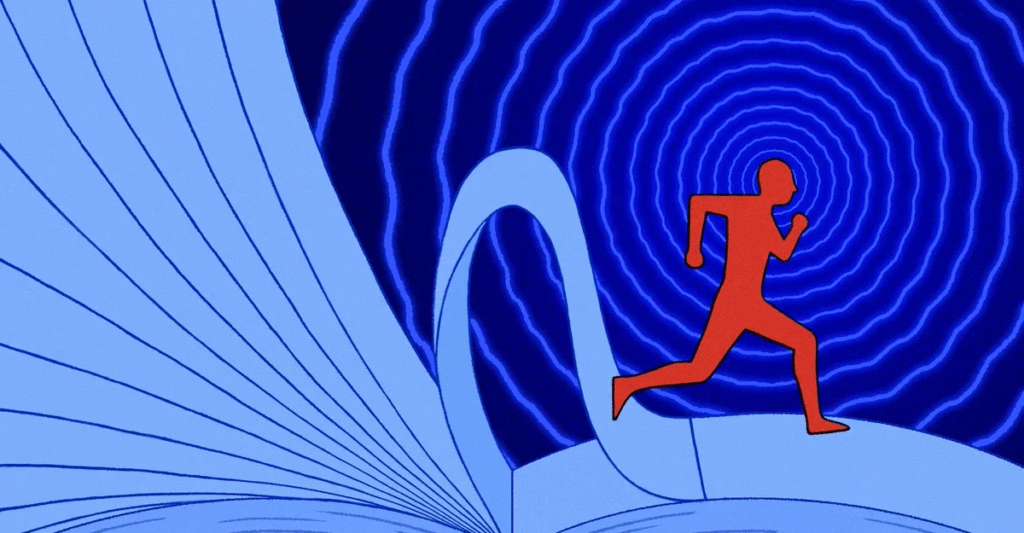The literary landscape of the 21st century seems more and more divided when it comes to one particular aspect: plot. Some books have it; others don’t. The have-nots have gotten a lot of critical attention in recent years: Think of novels that read like an extended internal monologue, describing in intimate detail the thoughts, feelings, and impressions of a protagonist. Usually, this is not someone who makes things happen, or to whom things happen; the strength of the narrator’s voice and the depth of the emotional landscape are expected to carry the audience through the (loosely defined) story. Authors as varied as Rachel Cusk, Claire-Louise Bennett, Ben Lerner, and Ottessa Moshfegh have been acclaimed for work of deep interiority and minimal eventfulness.
But I see no reason a novel should have to choose between voice and action. In all of my favorite books, the shape of the plot amplifies the characters’ emotional journey or the author’s artistic philosophy. And I know I’m not alone. Plot-heavy books still dominate the best-seller lists. After all, narrative is in our nature: Once upon a time and the end are still two of the most recognizable phrases in the English language. Small wonder, then, that many readers continue to crave books with an intrinsic momentum, novels in which events follow a logical progression toward a dramatic climax and a hard-earned resolution. Here are eight books for readers with the same predilections—pick one up when you want something to actually happen.
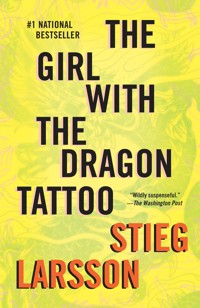
The Girl With the Dragon Tattoo, by Stieg Larsson, translated by Reg Keeland
This book was a sensation for a reason. The Girl With the Dragon Tattoo is, at its core, a locked-room mystery. The room just happens to be an isolated Swedish island, the suspects all members of a weird and wealthy family, and the man tasked with solving the mystery, Mikael, a trapped outsider not liking his odds of getting out alive. Mikael is a journalist ostensibly hired by the mysterious Henrik Vanger to write the family’s history. His real assignment? Investigating the disappearance of Henrik’s great-niece Harriet 40 years ago, with the help of the prickly savant computer hacker Lisbeth Salander. The pair’s determination to get to the bottom of things mirrors the reader’s. As Mikael ventures into greater and greater danger, the narrative becomes more claustrophobic and tangled, and the story’s unraveling is rich and rewarding. Not for the faint of heart or weak of stomach, Dragon Tattoo is as elegant as it is brutal.
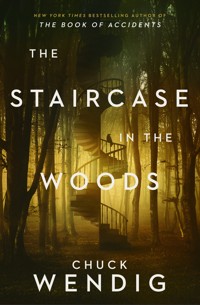
The Staircase in the Woods, by Chuck Wendig
Some readers may dismiss horror, or other genre fiction, as cheap entertainment based on its shelving alone. Wendig has never written a book that wasn’t entertaining, but he’s never written a cheap one either. His latest novel, The Staircase in the Woods, looks squarely at the darker facets of human nature, and it never eschews the grotesque for the sake of good taste. (Birthday cake with a side of severed thumbs, anyone?) The premise intrigues from the start: Five teenagers climb the mysterious staircase of the title, and only four come out of the forest. Decades later, the survivors agree to try to find their friend—but they’re not certain about what actually happened back then, or what will happen when they return. The longer you spend in Wendig’s haunted house of a novel, the deeper you probe into the troubled minds of his characters—and this fine, freaky psychodrama will keep you up past your bedtime.

Vladimir, by Julia May Jonas
I’ve read many campus novels, as the author of one, and I’m a harsh judge of them. But Vladimir stands out among a crowded field: Jonas’s novel is so good, strange, and true that it made me want to keep reading even when I was thoroughly sick of the genre. Its plot is just wild enough to be plausible to anyone who’s actually worked in academia and delightfully nutty to anyone who’s only ever accessed that world through the warped lens of fiction. The protagonist’s plan—to seduce a young professor as revenge for her husband’s infidelity—is utterly deranged, but her motives are so painfully relatable that you might find yourself wanting her to get away with everything. Thank God Jonas had the nerve to write this. It’s short, fast, sharp, and fresh.
[Read: This is not your typical campus novel]
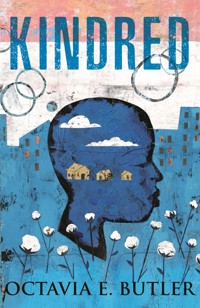
Kindred, by Octavia E. Butler
Butler is a master of exposition. I loved teaching her writing to undergraduates, because she gets the ball rolling in record time, every time. Her novels are perfectly plotted; their enormously complex stories unspool effortlessly. Kindred is just one example; it manages to deploy the unwieldy device of time travel without boring the reader with sci-fi details. How does its hero jump from the 20th century to the 19th and back again? It doesn’t matter: The point is that a Black woman living in 1970s California has been booted back to antebellum Maryland, where confronting her own family history might mean erasing herself from the future. It’s a riveting read, which proves that a well-structured story can expose a society’s most harrowing dynamics.
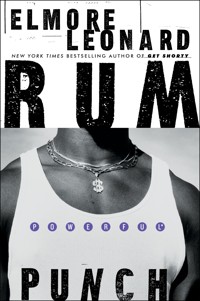
Rum Punch, by Elmore Leonard
This novel is so packed with plot that Quentin Tarantino adapted it into the extra-long film Jackie Brown, in 1997. If you’ve seen the movie, you might imagine Pam Grier sauntering across the page, but this is a breakneck novel in its own right: Characters make and shatter alliances at dizzying speed, and nobody’s motives are ever quite what they seem. A middle-aged flight attendant, Jackie Burke, finds herself trapped between the FBI and an ambitious gunrunner when she gets caught moving his merchandise across international borders. Shoot-outs, sting operations, and boatloads of blow: This book has it all. It’s a terrific beach read, but it has enough substance to keep you sustained no matter where you pick it up.
[Read: The Elmore Leonard paradox]
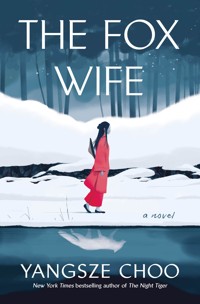
The Fox Wife, by Yangsze Choo
Choo’s novel, set in Manchuria in 1908, blends folklore and classic detective fiction, and adds a dash of fantasy—half of its characters are shape-shifting spirits who transform from foxes to humans and back again. These creatures are as clever and crafty as you might expect, and the narrative twists keep the reader in a state of high alert. What starts as a police procedural about the death of a high-class courtesan soon blossoms into a fantastical quest to break curses, rekindle lost love, and catch a murderer. Although it’s not overly long, the book has a mythic feeling, moving through time and space like an epic poem. Choo seamlessly combines narrative momentum and lush world-building, so the reader discovers the setting and uncovers the mystery alongside the novel’s endearing detective.
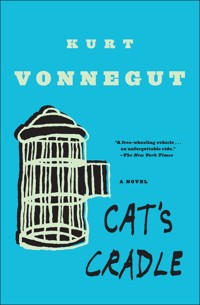
Cat’s Cradle, by Kurt Vonnegut
A ticking bomb in need of defusing is a fantastic device for creating compelling fiction. (This is why Hollywood explosives frequently have big, scary digital countdown displays—something their real-life counterparts don’t have.) In Cat’s Cradle, Vonnegut tweaks this trope to fit his signature, screwy black comedy. Here, the doomsday device is a mad scientist’s unstable compound, ice-nine, which is destined to plunge the world into a new Ice Age if it ever comes into contact with water. Naturally, Vonnegut puts the inventor’s irresponsible heirs on a plane that’s en route to an island nation controlled by a power-mad dictator, turning the book into a kind of apocalyptic countdown. It’s clear from the start that things will go terribly awry—how could they not?—but the when and how of the eventual catastrophe are anyone’s guess. Don’t try to figure out where this book is going. Just enjoy the ride and trust that you’ll arrive right where you need to be.
[Read: The making of Kurt Vonnegut’s ]Cat’s Cradle
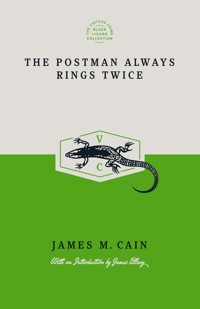
The Postman Always Rings Twice, by James M. Cain
By far the shortest book on this list, Cain’s classic noir can be gulped down in one sitting. Its plot is about, well, plotting: The two thoroughly unlikable lovers who drive the action of the story, Frank and Cora, are planning a murder more or less from the moment they meet. But the killing doesn’t go at all according to plan, and the criminals are forced to keep scheming to cover their tracks. Everyone in the novel is easy to loathe, but as you wonder when and how they’ll get caught, Cain makes you unsure of how you’ll feel about it when they are. Something like a 20th-century version of Macbeth (one of Shakespeare’s shortest and most action-packed plays), The Postman Always Rings Twice puts the reader on uncomfortably intimate terms with the villains; you watch them unravel in devastating style.
The post Eight Plot-Heavy Books That Will Keep You Turning Pages appeared first on The Atlantic.
